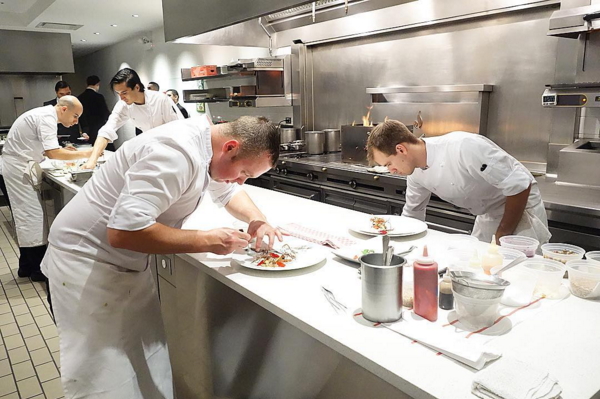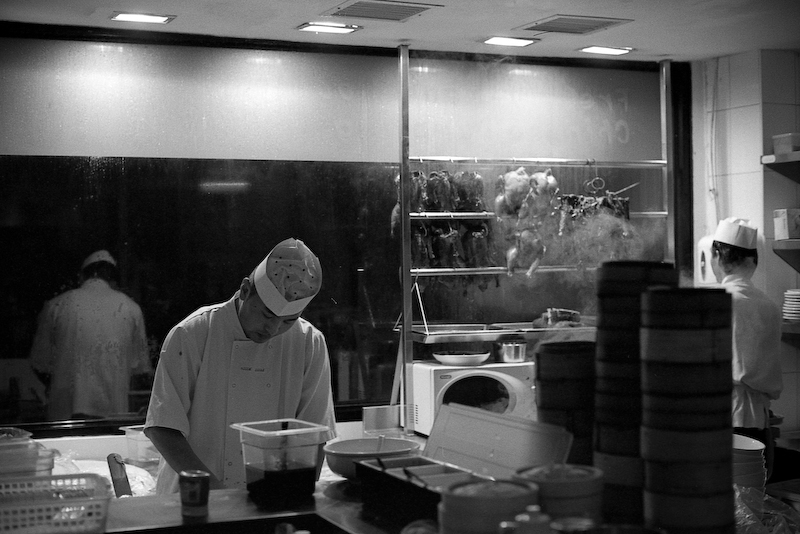In April 2015, famed celebrity chef Homaru Cantu, best known for his use of molecular gastronomy, was found dead inside the building he was planning to renovate into a restaurant. Cantu had no history of depression or mental illness and the death was ruled a suicide.
Only a few weeks ago, more than 1,500 people attended the funeral of French-born chef Benoît Violier of Restaurant De l’Hôtel de Ville, a recipient of three Michelin stars. Violier, who was often dubbed the “world’s top chef”, did not pass away due to old age or a heart attack. Rather, the 44-year-old paragon ended his own life, leaving behind a wife and son.
Though disheartening, these terrible stories are just a few examples of how incredibly detrimental the stress of the restaurant industry can be on those who thrive in it.

Photo courtesy of @cutiepatroller on Instagram
Mental health will always continue to be a touchy subject for most individuals simply because of the stigma that surrounds the topic. Those affected by the consequences of suicide or depression can find it difficult to share their stories and speak out about both the depth and breadth of emotional disorders.
Nonetheless, it is time to end the stigma that surrounds mental health in the lives of chefs and owners alike in the restaurant and culinary worlds. No longer should 3 out of every 4 individuals that suffer from a mental illness feel its effects, including shame, distress, and misrepresentation.
The foremost step in ensuring this motion is to have an understanding of the reasoning behind the increasing prevalence of depression in the food service industry. While it’s difficult to pinpoint the exact cause, there are a plethora of triggers that are extremely common to virtually every member of high-speed restaurant environments.

Photo courtesy of photopin.com
Demand for Perfection
The restaurant world is designed to not only request perfection, but demand it. With so much competition, if the final product is not precisely what the target market is looking for, customers will move on to an alternative eatery without hesitation.
Lack of Room for Error
Unlike most industries, there is absolutely no room for error when dealing with a product that can so easily be tarnished. Anything from a simple pasta dish to an extravagantly designed dessert platter requires every action in its preparation to be performed with precision and tenacity.
Physical and Mental Demands
Chefs are constantly moving around and thinking on their feet for hours upon hours at a time, and there is often little to no time to recuperate for the next day. The mental and physical demands of thriving in this industry often take a detrimental toll on the many individuals that have a stake in it.
Competitive Atmosphere
With food being such a universal product, there is a constant presence of rivalrous competition. In an ever-changing world, food trends are continually developing and those in the food service industry must learn to adapt to not only those trends but their competition’s newest concoctions as well. It’s a dog-eat-dog world out there, and the restaurant world is no different.

Photo courtesy of photopin.com
Okay, you get it: being an up-and-coming chef isn’t an easy job and mental illness is becoming increasingly prevalent in the food service industry. But what can be done about it and why aren’t people proactively trying to solve the issue? What’s stopping individuals from personally speaking out about the topic and why is it rarely publicized despite its universal nature?
The biggest and most reasonable explanation is that there is so much stigma that is relentlessly present. Constant judgement and false claims regarding the amount of mental strength needed for a job in the restaurant world consistently causes individuals with mental illnesses to feel ashamed.
Consequentially, a large portion of chefs tend to smoke and drink in an excessive manner in order to deal with the effects of extreme mental stress and the overwhelming feeling of being misunderstood. These behaviors only hurt their physical health in the long run and pin the profession as something it’s not.

Photo courtesy of photopin.com
But there are signs of change. Various charities and nonprofits are actively attempting to resolve the issue and destigmatize mental health issues in the industry. Chefs With Issues was created “for the care and feeding of the people that feed us.” Its creator, Kat Kinsman, hopes that the organization will aid in granting restaurant professionals the psychological help that they need.
According to an Eater.com article, Kinsman writes:
“Seeking help for depression, anxiety, bipolar disorder, OCD, addiction, not only is it a financial impossibility for people who often don’t even have access to basic healthcare – let alone mental healthcare – it’s stigmatized. We’re stopping each other from seeking help, and that’s got to change…For a profession that’s so much about sensual joy and physical satisfaction, it’s hard as hell on the psyche.”

Photo courtesy of photopin.com
The restaurant world should be one in which all players – from waitresses to head chefs – are nothing short of happy and healthy. Food will always continue to be a rich source of culture and tradition, and it’s time to recreate the perception of its evolving industry.
So, get involved and share your story, educate about the importance of maintaining a healthy mentality, and learn more about what you can do in order to make the restaurant industry one that is no longer misunderstood and unappreciated.
Let’s end the stigma.


